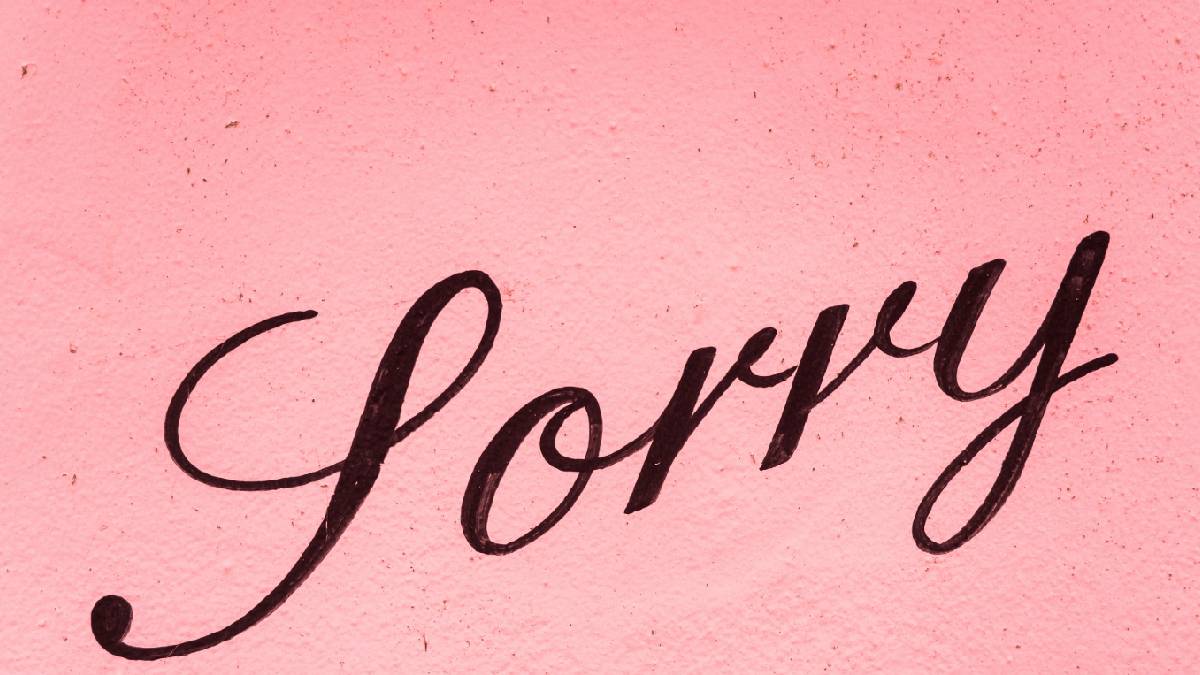
A Therapist Helps You Get Better At Admitting When You're Wrong
Unacknowledged errors may be easier on the mind, but they're missed opportunities for growth.

By Jourdan Travers, LCSW | April 27, 2023
For many, the idea of being wrong is an impossible pill to swallow. They may go to therapy saying things like:
- "I did it only because I wanted to help them out."
- "This is exactly what I was told to do, so how can there be a mistake."
- "It would have been fine if he/she had not added their opinions."
"I can't say I'm wrong" is a phrase that reflects a struggle that many people face in admitting their faults. Whether we deny, justify, blame, or ignore, it masks an inviolable truth: just like everyone in the world, we too make mistakes and mess up at times.
It can be challenging to acknowledge when we have made a mistake or have harbored an incorrect belief. For some, the difficulty in admitting one's fault can become a recurring pattern that impedes personal growth and hinders relationships. Instead of owning up, we try to save face through denial and/or ignorance.
Here are two reasons why you may shy away from standing up and taking responsibility for your actions, and how to change.
#1. Your ego is in charge
The Latin word 'ego' literally translates to 'I.' As humans, it is natural to act in our own self-interest and protect ourselves from threats, both physical and psychological. However, crossing the line from ego-aware to 'egotistical' (i.e., an inflated ego that is solely focused on achieving one's own wants and needs) can be more self-damaging than self-protective.
When we cross this line, we start to live in the bubble of assumed perfectionism, saying things to ourselves like, "I always have to be right and cannot make any mistakes."
Admitting that you are wrong may disrupt your sense of pride and make you think you appear weak, leading to further self-sabotaging behaviors, such as:
- Creating a false sense of entitlement and superiority. You may feel that the rules do not apply to you or that you are above reproach. This can lead to reckless behavior and a disregard for the consequences of your actions.
- Being closed-minded to others' perspectives. Perhaps, the only reality you can accept is the one you have created, rendering other opinions irrelevant and worthless.
- Seeking information that confirms rather than challenges self-beliefs. A research study published in the European Economic Review found that individuals often deny taking feedback from supervisors unless it preserves their existing positive self-view.
#2. Past trauma triggers vulnerability
Our past experiences play a big role in shaping our current beliefs and behaviors, including our ability to take accountability for our mistakes.
There are at least three reasons why certain childhood experiences may make you feel unsafe acknowledging your mistakes and shortcomings:
- Fear of punishment. Children who were belittled or punished for making even the slightest error as a child may avoid owning up to their errors as an adult out of a misplaced fear of receiving the same harshness they received as a child.
- Fear of judgment. Children who were judged primarily on the basis of their achievements and failures develop o a character flaw that causes issues in their adult lives.
- Modeling. Children who rarely observed their caregivers expressing remorse, compassion, or forgiveness may find it difficult to express, or expect to receive, those same emotions as adults.
An unsupportive childhood environment that looked down upon human error can teach us to hide our follies and develop unhealthy coping patterns as adults. This causes us to defend rather than learn from our mistakes.
However, there is a ray of hope.
An article published in Personality and Social Psychology Bulletin shows that when people come to realize that personality is a malleable (not a fixed) entity, they are more likely to admit their mistakes as they understand that mistakes are a stepping stone to an improved personality.
In other words, taking responsibility is the first step toward change – and believing that change can happen is the precursor to taking responsibility.
Conclusion
Exploring the reasons why it is so hard for you to admit your faults is a great way to begin on the path of self-improvement. With love, support, and professional help, one can develop the humility to acknowledge and learn from setbacks.
Remember, apologizing does not make you any less of a person. It shows courage, honesty, and strength of character.
